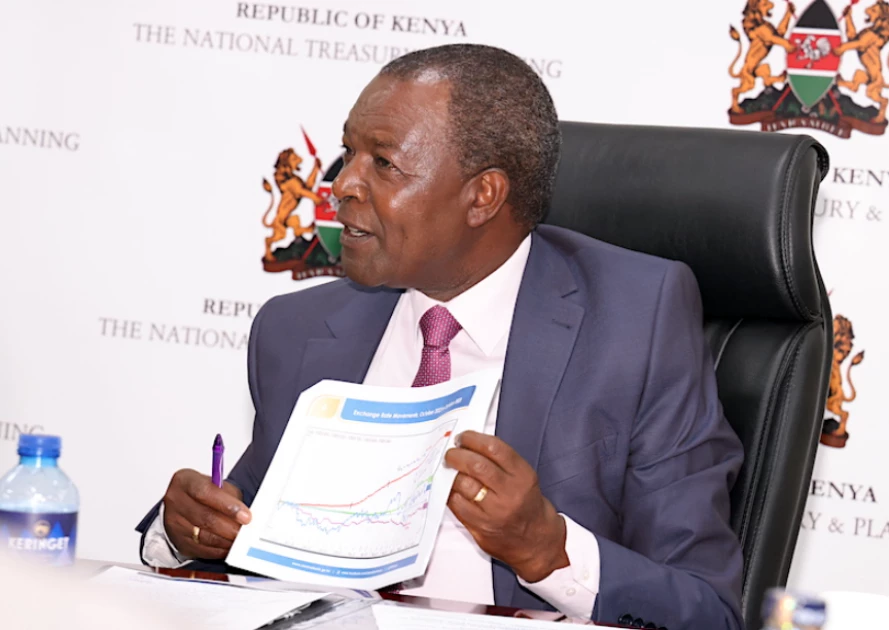Gov’t now denies G2G oil deal failure, claims Kenya has benefitted

National Treasury CS Njuguna Ndung’u during a past meeting in his office. PHOTO | COURTESY
National Treasury Cabinet
Secretary Njuguna Ndung’u now says the Kenya Kwanza administration did not
admit to failure of the government-to-government oil arrangement with Saudi
Arabia.
CS Ndung’u, in a statement
released on Friday evening, sought to clarify the text quoted from the
International Monetary Fund (IMF) report as he faulted the media over what he
said was a misrepresentation of facts.
He said they did not admit to the
failure of the arrangement, but that their statement to the IMF “specifically
addresses the anticipated rollover risk associated with private sector
financing facilities supporting the arrangement.”
“It is imperative to set the
record straight on the nature and purpose of the government's participation in
the government-to-government (G to G) oil import arrangement. This initiative
was implemented as a temporary measure with the primary objective of
stabilizing the market and alleviating foreign exchange market pressures,” he
explained.
“Contrary to misleading
assertions, the government's eventual exit from this arrangement has always
been part of the strategic plan to pave the way for private sector players to
assume a more prominent role.”
He added: “The assertion that the
government has admitted failure in the G-to-G approach is a gross
misinterpretation. The quoted text in the IMF report specifically addresses the
anticipated increase in rollover risk associated with private sector financing
facilities supporting the arrangement, a predictable outcome given the inherent
dynamics of such financial structures.”
The Cabinet Secretary defended
the deal saying it served to further stem the depreciation of the Kenya shilling
and that the country has recorded immense benefits from the arrangement, with
no stock-outs of fuel products reported since the adoption of the arrangement.
“Further, since the commencement
of the G to G arrangement, the country and the region at large have enjoyed
security of supply of petroleum products and there have been no instances of
product stock outs as had been witnessed just before the arrangement,” he
stated.
The CS consequently reiterated
the milestones the government had attained since the start of G2G migration.
“The importation of petroleum
through a Government to Government arrangement is one of the key measures that
the Government of Kenya initiated in early 2023 in order to avoid an economic
shutdown due to supply constraints that existed then and in particular US
Dollar liquidity problems,” he said.
“At the time, the monthly demand
for US Dollars by the petroleum sector was about 500 million per month that had
put a strain on the country's forex reserves threatening the security of supply
of petroleum and other critical sectors such as food and agriculture that also
heavily rely on imports. In addition, the inter-bank forex market was
dysfunctional.”
The remarks by Prof. Ndung’u came
hours after Kenya announced it was exiting the G2G deal with
Saudi Arabia saying that it is distorting the forex market and claims that the
government had admitted that it has failed to ease the pressure on the dollar.
The G2G deal which was launched
by President William Ruto in April 2023, was billed as the solution to
stabilising the Shilling against the Dollar.
Want to send us a story? SMS to 25170 or WhatsApp 0743570000 or Submit on Citizen Digital or email wananchi@royalmedia.co.ke
Comments
No comments yet.


Leave a Comment